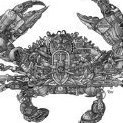Bringing Thaksin To Account
-
Recently Browsing 0 members
- No registered users viewing this page.
-
Topics
-
Popular Contributors
-
Latest posts...
-
1
Is "Putinization" a more accurate way to describe what Trump is doing to America?
Ever since the election, I've had this persistent mental hitchhiker. It won't get out of my head, and frankly, it's starting to smell a bit like stale campaign promise. How would Donald Trump deal with Thainess? -
5
THAILAND LIVE Thailand Live Monday 26 May 2025
Red-Plated Toyota Alphard Hits Father and Son, Flees Scene Picture courtesy of Khaosod. A hit-and-run involving a black Toyota Alphard with temporary red number plates has left a father and his young stepson dead in Sai Noi District, Nonthaburi Province. The driver fled the scene, leaving behind the vehicle’s front license plate and shattered car parts, providing police with crucial evidence. Full story:https://aseannow.com/topic/1361750-red-plated-toyota-alphard-hits-father-and-son-flees-scene/ -
5
THAILAND LIVE Thailand Live Monday 26 May 2025
Thai PM Paetongtarn Dismisses UK Trip as Holiday Picture courtesy: National News Bureau of Thailand Prime Minister Paetongtarn Shinawatra has clarified that her recent visit to the UK and Monaco was not simply a holiday. Full story: https://aseannow.com/topic/1361751-thai-pm-paetongtarn-dismisses-uk-trip-as-holiday/ -
0
Politics Thai PM Paetongtarn Dismisses UK Trip as Holiday
Picture courtesy: National News Bureau of Thailand Prime Minister Paetongtarn Shinawatra has clarified that her recent visit to the UK and Monaco was not simply a holiday. Speaking before her departure to the 46th ASEAN summit in Kuala Lumpur on May 25th, she highlighted significant diplomatic progress, particularly concerning a potential Formula 1 city circuit Grand Prix in Thailand, according to Amarin TV. The Prime Minister emphasised that her schedule was predominantly occupied with official duties, leaving her with only a brief opportunity for leisure at the airport on her last day. During her UK visit, she engaged in discussions with the British Department of Trade and Industry, exploring market needs and deliberating on the prospects of establishing a Free Trade Agreement. Shinawatra also met with Prince Albert II of Monaco and held discussions with Formula 1 executives, enhancing prospects for Thailand to host a city-circuit Grand Prix. Further details are expected to emerge in the coming two to three months. Adapted by ASEAN Now from Thai Newsroom 2025-05-26 -
47
Retirement Extention renewal - Using an Agent - Requirements ?
It isn't worded correctly but that is for the single (1000B) or multiple (4000B) re-entry permit -
0
Accident Red-Plated Toyota Alphard Hits Father and Son, Flees Scene
Picture courtesy of Khaosod. A hit-and-run involving a black Toyota Alphard with temporary red number plates has left a father and his young stepson dead in Sai Noi District, Nonthaburi Province. The driver fled the scene, leaving behind the vehicle’s front license plate and shattered car parts, providing police with crucial evidence. The fatal incident occurred at approximately 22:00 on 24 May, along a frontage road running parallel to Khlong Na Mon in Moo 1, Khlong Khwang subdistrict. Local police, medics from the Institute of Forensic Medicine and rescue personnel from the Poh Teck Tung Foundation were quickly dispatched to the scene. At the scene, authorities found the bodies of 40-year-old Mr. Tiwa and his 7-year-old stepson, Master Suttikorn who had been riding on a purple Honda Wave motorcycle. Emergency responders attempted CPR at the scene, but Mr. Tiwa was pronounced dead on the road. His stepson was rushed to Sai Noi Hospital, where he later succumbed to his injuries. Debris from the crash, including the Alphard’s red licence plate, front grille, and a broken wheel arch, was scattered across the crash site. The motorcycle lay heavily damaged with its front end destroyed. A witness, who had been sitting in front of a nearby shop, reported that the Alphard was attempting to overtake a car on the left side when it struck the motorcycle. The driver then sped off toward Khun Si subdistrict. The witness shouted and tried to chase the vehicle but was unable to stop it. Another motorcyclist also attempted to pursue the fleeing car, but the Alphard accelerated and got away. CCTV footage reviewed by police captured the black Alphard following a saloon car into the narrow lane. Moments later, at the front of a motorcycle repair shop, the victim’s motorbike can be seen approaching from the left before a collision is seen. People from the shop can be seen reacting and attempting to stop the fleeing vehicle. Later that night, 38-year-old Ms. Tan, the wife of the deceased, arrived at the crash site in distress. She revealed that her husband had taken their son along to work a night shift as a security guard at a local machinery depot because she was required to work overtime and couldn’t look after the boy. She said she was devastated to learn that both had died in the crash. Police confirmed that the Alphard’s licence plate and vehicle fragments will be used to track down the driver. Legal action will be pursued once the individual is identified. The bodies of the deceased have been sent to the Institute of Forensic Medicine for further examination. Adapted by Asean Now from Khaosod 2025-05-26.
-
-
Popular in The Pub
-





.thumb.jpeg.d2d19a66404642fd9ff62d6262fd153e.jpeg)

.thumb.jpeg.42eea318e3350459f0aaaa5460326bca.jpeg)

Recommended Posts